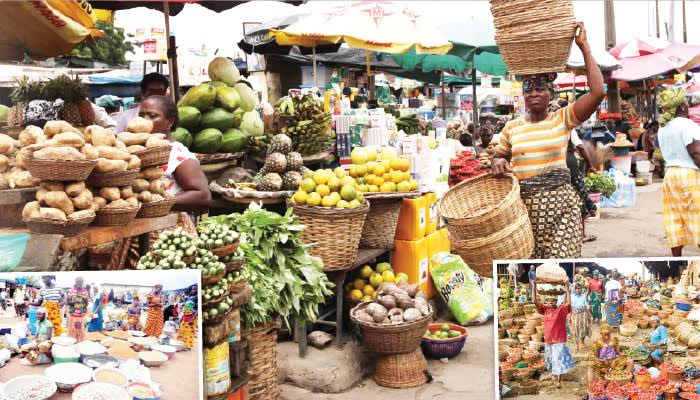SPECIAL REPORT: ‘It’s tough for me’ — Nigerians groan as prices of DSTV/GOtv, food, fuel, others soar

Despite Nigeria’s rich agricultural resources, the prevailing issue of food insecurity continues to wreak havoc on its communities, leaving a devastating impact on the nation’s progress.
As a result of fluctuating agricultural production, rising food prices, and ongoing economic challenges, millions of Nigerians are facing a daily struggle to put food on the table.
Also, fuel pump prices in the country have risen due to an increase in global oil prices. This hike has affected the cost of transportation, leading to an increase in the prices of essential goods and services across the country. This puts added pressure on the already burdened Nigerian population.
As the crisis lingers, DStv has also announced a second increase in subscription prices this year, starting from November 6, 2023. The price adjustments will affect various subscription packages, with increases ranging from 19% to 20%. For example, DStv Premium will see a 20% increase to N29,500, while Jolli will see a 19% increase to N3,950.
This has led to a significant rise in malnutrition rates, particularly among children, further exacerbating the cycle of poverty and underdevelopment.
READ ALSO: 10 tips to survive growing economic hardship as a Nigerian
However, in this report, Crispng.com randomly speaks to some Nigerians about the impact of the escalating food cost and what can be done to avert their suffering.
Ms. Sadiya Abubakar, a private worker in Niger state, said that the increase in prices of food commodities has affected her. That she can no longer save because she has to increase the amount of money she spends on food monthly.
“The food I buy doesn’t last until the end of the month before it finishes. N20,000 is not enough to take care of my feeding expenses and my salary is not that huge for me to spend much on food”.
Sadiya added that just as the sellers used to say the increase in prices of food commodities is a result of the increase in fuel price. She believes the fuel hike is one of the major problems but to me, farmers and the sellers are one of the major problems because they increase the prices of food commodities almost every week or month which has nothing to do with the increase in fuel price. They do that for their selfish reasons.
Drivers too are not sincere as they unnecessarily increase the cost of transporting goods and services thereby causing the sellers to increase the price of food commodities.
She added that Nigerians need to know that Government alone is not the cause of our sufferings, we play a major role in inflicting pain on ourselves.
How can the government increase fuel prices once and our local market would continuously increase the price of food commodities without the thought that the poor masses will be at the receiving end?
Nigerians need to understand that the increase in prices of food commodities affects their fellow poor masses more than it may affect the people in government. We therefore need to be there for each other by not unnecessarily increasing the prices of food commodities Safiya said.
Also speaking to Crispng.com, Sani Lawal Aduba a media practitioner in Niger state said that the challenges of continuously rising food prices do not only stop at the food we consume but have invariably affected every aspect of our living. This is because food is a necessity and this also means other lives’ comfort has to be sacrificed, such as clothing, socialization, and even education. This is to mention but a few.
Going further Aduba noted that “in simple terms, the removal of fuel subsidy is the cost of the lingering food crises. Another factor is dollar destabilization. In all, poor economic policy of the federal government”.
He therefore suggests that to avert these challenges Nigeria needs to have working economic policies that will drive us forward. Let us as a country cut the cost of governance from a political angle. Let’s encourage and reward productivity at the grassroots in the areas of Agriculture asmall-scaleale businesses.
For Elisha Chebwawaza Gideon a final year Student at the IBB University Lapai, Niger State the recent surge in food and non-consumable item prices has had an impact on him. It has made it more challenging for him to manage expenses and budget effectively.
“I have had to be more mindful of my spending and find ways to cut costs without compromising on essential needs. It’s been a tough adjustment, but I’m doing my best to navigate through these challenging times”, Elisha said.
He also said that there are various factors responsible for this such as inflation, supply chain disruptions, and increased demand. To manage this, it’s important to prioritize needs over wants, create a budget, and shop smartly by comparing prices and looking for deals. I’ll also say, exploring alternative options like buying in bulk or shopping at local markets can help mitigate the impact of rising prices.
With alarming consequences on health, education, and overall societal well-being, it is high time Nigeria takes urgent action to address the lingering cost of food insecurity, ensuring a secure future for its people.

